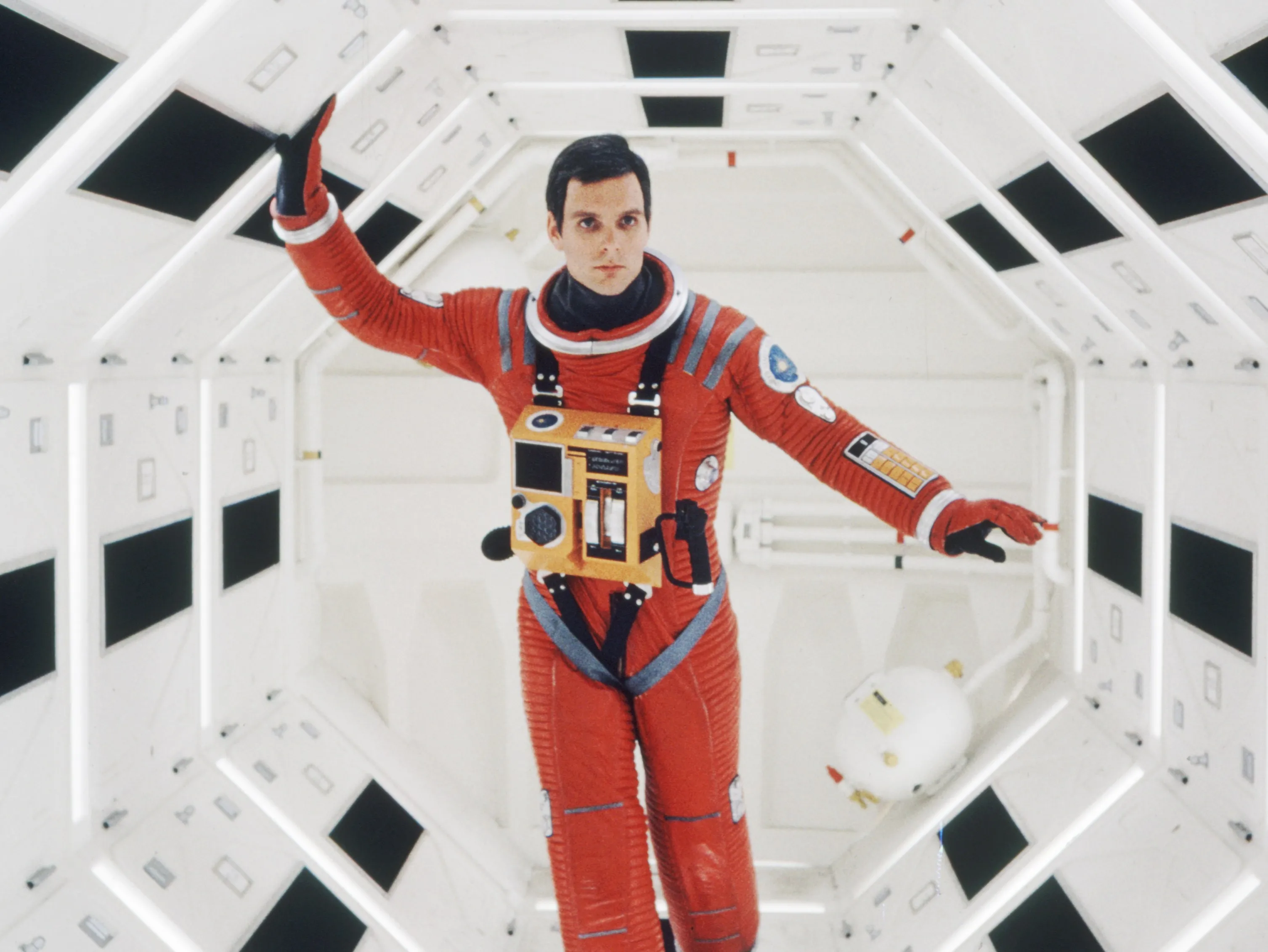“Ascension?” Daryl exclaimed. “That’s all it’s about — ‘ascension?’”
“What do you mean, ‘That’s all?’” I fired back. “We’re talking about a movie that covers the entire existence of humanity, past, present and future!”
“Yeah,” replied Daryl, ”but that’s not actually being about anything. It’s so vague. That’s bull!”
Such went the discussion I had with a fellow movie-buff friend after watching the 1968 science-fiction masterpiece, “2001: A Space Odyssey” — him for the first time, me for at least the 20th. As someone who grew up watching “2001” more often than “Star Wars,” after so many viewings it has never become any less disturbing, stunning, detailed and ambitious. Yet, after his first viewing, Daryl (whose name, of course, has been changed to protect him from the hordes of angry fans upset at his sacrilegious reaction) saw largely pretension, incoherence, fracture and unnecessary experimentation.
Daryl, however, is far from wrong. Despite its renown within moviedom, “2001: A Space Odyssey” remains a bizarre beast that is, at times, painfully slow (it insists on its scenes taking place in real-time) and awkwardly quiet (the soundtrack consists only of occasional classical music, and some of the space scenes are, realistically, completely silent). It includes three minutes of a blank screen with a strange wailing noise, an ending that seems inspired by the experience of looking through a kaleidoscope while on acid and 40 minutes of grunting apes squabbling over a water-hole. Only about half of the film’s lengthy runtime actually contains any vestige of a plot. Compared to director Stanley Kubrick’s other movies (which, themselves, are rarely traditional), “2001” is utter madness in its commitment to its unconventional structure. When it was first released, hundreds walked out of theaters. Although it is now considered one of the two best sci-fi films of all time (the other being “Blade Runner,” which, notably, Daryl absolutely adores), it was snubbed for Best Picture.
Especially in a world of fast cuts, formulaic blockbusters, streaming content overload and YouTube Vine compilations, the film’s obtuseness and slow pace can seem even more, by comparison, unnecessary, indulgently self-obsessed and disrespectful of the audience’s time. Nevertheless, the prospect that “2001” will be doomed by our generation to join such works as “Cleopatra” in the bucket of “once good, but now outdated and unwatchable” movies, is tragic. The psychedelic experience of watching it remains completely unparalleled in the world of art, and it leaves one with an incomparable sense of awe.
The film’s legacy can be preserved within our generation only if its reputation precedes it. Anyone expecting a “traditional” film in any sense of the word will be inevitably disappointed. “2001” is meant to wash over the viewers. A good audience should not “engage” with the film, wrestle with its themes or guess at its surprises. The film is remarkable because of its distinct feeling, not because of its plot or its film-studies-esque “theme.” To watch “2001” in this unique way requires an appropriate expectation and mindset, one that embraces rather than questions and is satisfied with the deliberately unsatisfying.
My argument with Daryl ended with me insisting that he watch the film six more times and then get back to me. Shortly thereafter, Daryl sent me a lengthy text explaining how, upon some reflection, the film had more merit than his initial gut-reaction warranted. Now, almost a week later, he tells me that the film has been percolating through his mind and that his opinion has shifted from negative to overwhelmingly positive. “I love it,” he recently told me, running through his complex interpretation of the film’s use of the motif of tools (or lack thereof) and how they interact with desperate situations of survival. This was an interpretation that, from my point of view, was entirely wrong and sent us spiraling down into debate once again.
Ultimately, the movie’s magic isn’t in the endless friend-on-friend conflict its obtuseness will inevitably inspire; though everyone may process it differently, and at different rates, the film’s disparate pieces can’t help but coalesce into a whole that strikes every person as powerfully as the next. Under the film’s gaze, we’re all equally a part of the human species whose story it writes, and, like apes staring incomprehensibly up at a spaceship, we’re all equally as wonderstruck and baffled by what it thinks we will become.
Contact Noah Howard at noah.howard ‘at’ stanford.edu.
